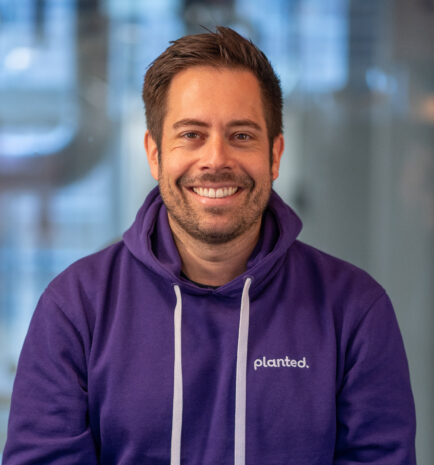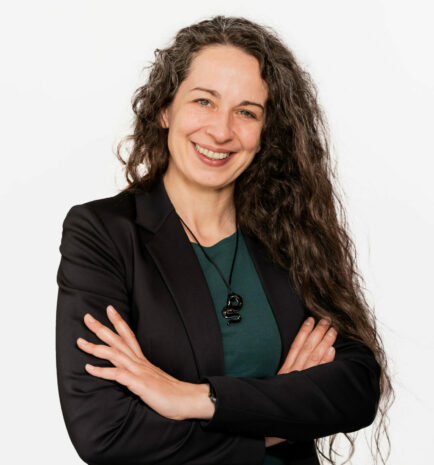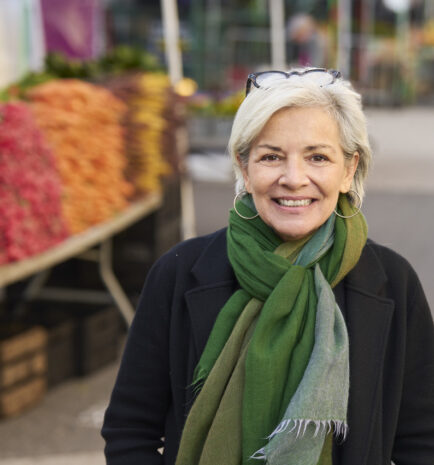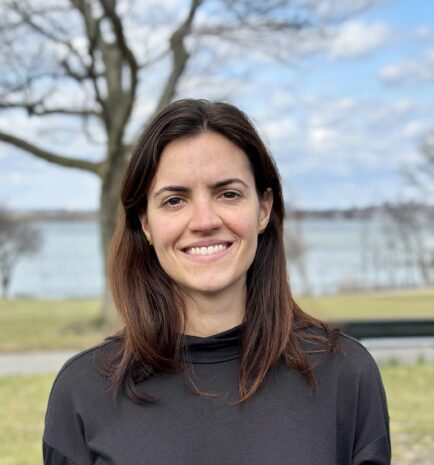
To win a fight, you need to provide your body with the proper fuel. Professional boxers eat a lot – up to 5000 calories per day, twice the recommended amount for an average person. Over the next hundred years, global calorie requirements are set to rise by almost that much, increasing by as much as 80% by the end of the century. Unless we drastically reduce the environmental impact of our food systems, this increase threatens to undo our progress in other areas of climate action.
In Round 9 of the Climate Ring, join Swissnex and FoodHack to discover the future of food. In this event, pioneering food innovators share their visions of how we might eat a century from now, exploring how advanced food technologies – from lab-grown meats to sustainable aquaculture technologies – could transform our diets, agriculture, and food systems. Following the presentations, a panel of experts will discuss what it will take to make these visions a reality, from regulation to industry adaptation to consumer acceptance. Afterwards, join the conversation in the Q&A and network with fellow food enthusiasts.
Climate Ring
12 rounds. 3 days.
1 fight for the planet.
From September 25 to 27, 2024, Swissnex presents the Climate Ring, a pop-up boxing arena for the fight of the century: the one for planet Earth. Join us in New York’s East Village for an eclectic mix of discussions, exhibitions, and performances featuring rising stars and heavyweights from science, innovation, and the arts. From carbon capture pioneers Climeworks to New York nightlife impresaria Susanne Bartsch, the Climate Ring showcases fresh perspectives on our planetary moment from Switzerland, the US, and beyond.
Program
- 10:45am – Check-in
- 11:15am – Introductions
- 11:20am – Startup Presentations
- 11:35am – Panel Discussion
- 12:15pm – Networking
- 12:30pm – End
iCal / Outlook
Event start time
-
New York
10:45AM
Presenters
-
![]()
Bio
Pascal Bieri
PlantedPascal Bieri is one of four founders of Planted and a member of the Executive Board. Pascal grew up in Sursee and studied business administration at the University of St. Gallen, gaining an M.A. in Business Innovation. After five years with Migros Industrie in various positions, including three years in the US, he founded the ETH Foodtech Spin-off Planted in 2019 together with three co-founders. Planted is currently the fastest growing start-up in the alternative protein space in Europe. Pascal is responsible for sales and international business development.
-
![]()
Bio
Andrey Matveev
KIDEMISAndrey Matveev is a former professional tennis player who transitioned into real estate development after his sports career. Over time, he developed a strong interest in biotechnology, which eventually led him to explore sustainable farming practices. His passion for aquaculture inspired him to join the Kidemis project, an innovative initiative focused on creating clean, eco-friendly solutions for aquaculture. Kidemis aims to utilize agriculture sidestreams as input to cultivate mycelium protein, which is then transformed into a sustainable and clean source of nutrition for farmed fish. This project reflects Andrey’s commitment to both biotechnology and environmental sustainability.
-
![]()
Bio
Patricia Bubner
OrbillionPatricia Bubner is a PhD scientist and engineer focused on commercializing cultivated beef. She is the co-founder and CEO of Orbillion Bio, Inc. Patricia holds an MSc in Technical Chemistry, a PhD in Biotechnology from Graz University of Technology in Austria and she conducted her postdoctoral research at the Energy Biosciences Institute at UC Berkeley. During that time, she pursued her conviction of a more sustainable food system as co-founder of the agriculture and food systems initiative, The Millet Project. Prior to Orbillion, Patricia advised several technology companies and led the Analytics and QC teams at biopharma startups. During her time with the Bioprocess Science team at Boehringer Ingelheim, she built and led a team dedicated to scaling bioprocess development for mammalian cells — the very systems required to commercialize cultivated meat.
-
![]()
Bio
Alice Fauconnet
New RootsAlice Fauconnet was born in the South of France and studied Social Anthropology in Paris. Having always been passionate about human rights and social justice, she became a vegan for animal rights in 2012. In 2016, she co-founded New Roots, a vegan cheese company, in the heart of the Swiss Alps. New Roots’ mission is to provide an ethical and sustainable alternative to animal-based cheese. To achieve this, they craft cheese from organic, homemade plant-based milk, using ancestral techniques of fermentation and ripening. Their range includes alternatives to camembert, ricotta, cream cheese, as well as Swiss classics such as fondue and raclette. Today, Alice is a public speaker and a social media manager at New Roots.
-
![]()
Bio
Henry Obispo
ReBORN FARMSHenry Obispo is a Social-Entrepreneur, Environmentalist and “Eco-Gastronomer” from The Bronx, the Founder and steward of ReBORN FARMS: the first in kind, giving life to a new eco-forward reality, by implementing hyper-local food systems. Henry’s mission is to create access, foster community empowerment and economic development through the implementation of a new green reality. Motivated by his sense of social responsibility, Henry’s mission is to revolutionize and decentralize food systems to serve populations long ignored and disinvested, to bring forth access and a future of food sovereignty. Using food as a tool for renewal, Henry rethinks how cities best serve their populations, developing equitable green infrastructure that centers them. Henry is also the founder of Born Juice, an ecological plant-based social enterprise, with a zero-waste model. Born Juice’s mission is carbon neutrality, by focusing on circularity, for the betterment of the planet and humanity. Through his community engagement, as an advocate and food-justicer, Henry has developed some of the most impactful food justice programs and initiatives in The Bronx and NYC. As president of the Restaurant Cooperative, Henry is an advocate of immigrant/BIPOC restaurant and food entrepreneurs, focusing on sustainable ways the hospitality industry can engage in support of new value chains through closed-loop models and ecological best practices.
Panel
-
![]()
Bio
Katie Stebbins
Food & Nutrition Innovation Institute, Tufts UniversityKatie Stebbins is the Executive Director of the Food & Nutrition Innovation Institute at Tufts University and was previously the Vice President for Economic Development at the University of Massachusetts President’s Office. Katie proudly played a leadership role as the inaugural Secretary for Technology, Innovation, and Entrepreneurship for Governor Baker in Massachusetts, where she led state investment efforts in clean energy, cybersecurity, health-tech, robotics, and advanced manufacturing. Katie continues her work in cybersecurity as President of Global Epic, an international consortium of cyber economic leaders. She is formally trained in economic development and environmental planning and has worked for twenty years designing and implementing technology driven projects for ecological and economic sustainability. Katie has launched three of her own companies, is an Innovator in Residence at MIT Sloan School’s Innovation Institute, and earned a master’s in regional planning from the University of Massachusetts at Amherst, and her BA from the University of Colorado at Boulder.
-
![]()
Bio
John De La Parra
Food Initiative, The Rockefeller FoundationDr. John de la Parra is an ethnobotanist and Director of the Food Initiative at The Rockefeller Foundation. He leads efforts to advance a more nourishing, regenerative, and just food system, including the creation of The Periodic Table of Food Initiative. His work focuses on how food crops and medicinal plants affect human health, culture, and the environment. He is passionate about working with frontline and indigenous communities to address major global challenges, emphasizing capacity strengthening through the equitable exchange of knowledge and technology. He has held previous positions as a research scientist and lecturer at Harvard University, the MIT Media Lab, Tufts University, and Northeastern University, as well as President of the Society for Ethnobotany.
-
![]()
Bio
Annette Nielsen
JournalistWith over two decades of experience, Annette Nielsen serves as an advisor and marketing consultant to academic institutions working in the global, national, and regional food space. Until recently, she held the role of Executive Director of the Hunter College New York City Food Policy Center. There, she served as editor of the weekly NYC Food Policy Watch newsletter, produced panels and summits on topics ranging from agriculture and climate to food systems and nutrition insecurity, as well as the annual 40 Under 40 Food Policy Awards, and launched a Smart Pantry pilot where vending machines were retrofitted as food pantries. Before assuming the ED role at the Food Policy Center, she led the New York City office for the New York State Department of Agriculture and Markets. Her role representing the Department provided a touchpoint for the agricultural and food industries in the greater metropolitan area, while supporting efforts across the state to build food systems and resiliency. Beyond working to extend access to healthful, farm-sourced food for all New Yorkers, her portfolio included facilitating the Commissioner’s statewide Community Gardens Task Force and the Procurement Advisory Group. After an earlier career path with leadership posts in Washington, DC serving on the staffs of US Senators Daniel Patrick Moynihan and Edward M. Kennedy, Ms. Nielsen put her skillset to work in the food world. Whether policy or programming, she has engaged in the full spectrum of the food system from production to consumption: launching an incubator kitchen, collaborating on an 8,000 square-foot community garden, facilitating farm to institution initiatives, serving on the inaugural health and wellness committee as an elected member of a NYS board of education, as well as significant work in agritourism, precepting nutrition students and teaching culinary nutrition and food systems to medical residents. Annette’s work as an award-winning food writer has appeared in national publications such as Adirondack Life, Eating Well, Edible, The Hill Rag, The Washington Post, and the Saratogian. She’s served as an advisory board member for the NYS Food as Medicine Coalition, New York City Nutrition Education Network, and Sidewalk Samaritan, is a member of the Food-Ed Steering Committee and the Policy Committee for the Food Ed Coalition at the Tisch Center for Food, Education; Policy at Teachers College, Columbia University, and the New York Women’s Culinary Alliance. She was appointed to NYC Mayor Eric Adams’ Transition Team for Food Policy, received the 2022 Food-Ed Coalition Outstanding Coalition Member Award, and the 2024 NYS Assembly Woman of Distinction Award. Annette earned her BA, Fine Arts from Colgate University, MA, Writing from Johns Hopkins, and completed her certification in Nutrition from Cornell University. She grew up in the Adirondacks and now calls Capitol Hill home.
-
![]()
Bio
Milagros de Hoz
NYC Mayor’s Office of Food PolicyMilagros de Hoz is the Deputy Director at the NYC Mayor’s Office of Food Policy. She is responsible for advancing the office’s work at the intersection of food, environment, climate, health, and equity. She works with local, state, and regional leaders to advance sustainable and equitable food initiatives and represents NYC in national and international coalitions. Previously, Milagros worked as a social scientist at the Office of Research and Policy Innovation at the NYC Department of Social Services. She’s also a Biologist and worked in environmental justice organizations in the US.
-
![]()
Bio
Henry Obispo
ReBORN FARMSHenry Obispo is a Social-Entrepreneur, Environmentalist and “Eco-Gastronomer” from The Bronx, the Founder and steward of ReBORN FARMS: the first in kind, giving life to a new eco-forward reality, by implementing hyper-local food systems. Henry’s mission is to create access, foster community empowerment and economic development through the implementation of a new green reality. Motivated by his sense of social responsibility, Henry’s mission is to revolutionize and decentralize food systems to serve populations long ignored and disinvested, to bring forth access and a future of food sovereignty. Using food as a tool for renewal, Henry rethinks how cities best serve their populations, developing equitable green infrastructure that centers them. Henry is also the founder of Born Juice, an ecological plant-based social enterprise, with a zero-waste model. Born Juice’s mission is carbon neutrality, by focusing on circularity, for the betterment of the planet and humanity. Through his community engagement, as an advocate and food-justicer, Henry has developed some of the most impactful food justice programs and initiatives in The Bronx and NYC. As president of the Restaurant Cooperative, Henry is an advocate of immigrant/BIPOC restaurant and food entrepreneurs, focusing on sustainable ways the hospitality industry can engage in support of new value chains through closed-loop models and ecological best practices.









